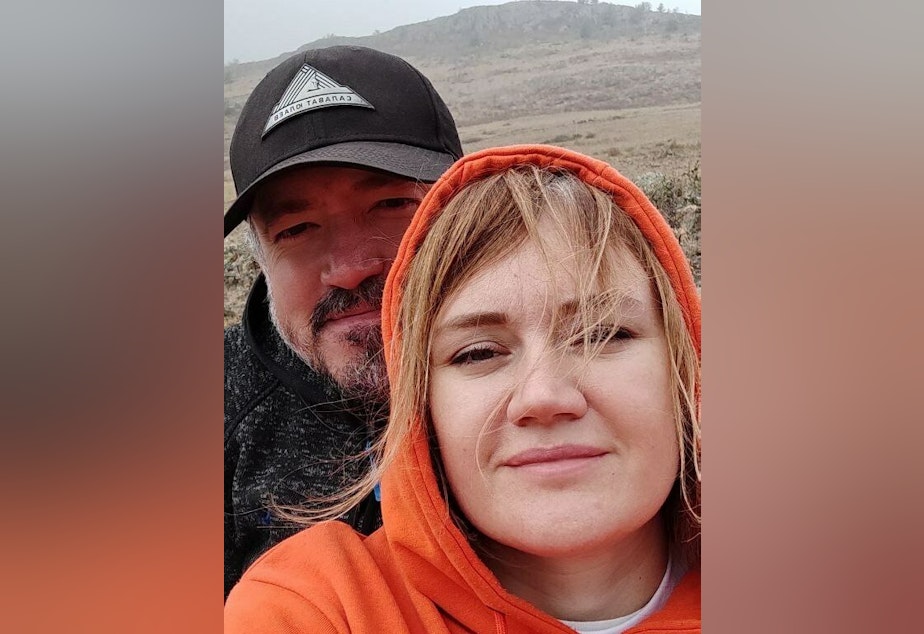An associate of Kremlin critic Alexei Navalny is sentenced to prison for extremism

MOSCOW — A Russian court sentenced a leading associate of opposition leader Alexei Navalny to 7 1/2 years in prison on extremism-related charges on Wednesday — the latest in a series of lengthy prison terms issued to political opponents of the Kremlin amid the war in Ukraine.
Lilia Chanysheva, 41, was convicted in a closed trial in central Russia's republic of Bashkortostan of "creating an extremist organization" — charges her lawyer denounced as "purely political."
Prosecutors had requested a 12-year sentence, but Chanysheva acknowledged the lesser sentence was still a blow, given charges she denies and regards as a sham.
"This is much easier to handle together with you. I really need your letters and postcards," said Chanysheva in a brief address to press and her supporters from inside the defendant's cage following the ruling.
Similar extremism charges await Navalny in a separate trial next week — and are widely expected to add decades to his current nine-year prison term on an embezzlement conviction.
Chanysheva is known to her detractors as "Navalny in a skirt"
By any standards, Chanysheva would seem an unlikely poster child for extremism.
A graduate of a leading Russian state financial institute, she worked at international accounting firms PricewaterhouseCoopers and Deloitte before leaving Russia's capital — and the corporate world — to return to her native Bashkortostan, a mineral-rich, majority-Muslim republic of some 4 million people nestled west of the Ural mountains.
"Yes, she could have stayed in Moscow and made her career but she decided to come home to Ufa. To put her energy into improving her home region," Chanysheva's husband Almaz Gatin tells NPR.
In 2017, Chanysheva agreed to run the regional branch of Navalny's Anti-Corruption Foundation in Ufa, Bashkortostan's capital, where her skills as a financial auditor made her an effective check on budgetary graft — and soon, her allies argue, a government target.
She produced a series of muckraking video investigations alleging government corruption, which earned the ire of Bashkortostan's regional governor Radiy Khabirov in particular, say supporters.
So, too, did Chanysheva's defense of Kushtau — a sacred hill beloved by locals that government-tied industries had hoped to mine for limestone deposits. Chanysheva led a months-long campaign of public protests that eventually forced Khabirov to halt the development plans.
Chanysheva also tried to run for local office, only to see her candidacy purged from voter rolls by Bashkortostan's election commission.
Meanwhile, harassment from the authorities kept building — with Chanysheva facing surveillance, repeated arrests and raids by security forces on their home, says Gatin.
"Those who are the strongest and most talented are the ones who face the most pressure," he tells NPR. "And to me, it said that Lilia had become the most important politician in Bashkortostan."
In government circles, Gatin says, his wife was derided — and increasingly feared — as "Navalny in a skirt."
Women are increasingly targets of repression
In November 2021, federal agents detained Chanysheva amid a wider crackdown on Navalny's political network, after a judge ruled his Anti-Corruption Foundation in violation of extremism laws.
That the foundation had already shuttered its doors or that Chanysheva had already left the organization to focus on family life with Gatin made no difference: the extremism charges against Chanysheva were introduced retroactively.
It was a harbinger of the quickly shifting political climate in the lead-up to Russia's invasion of Ukraine in February 2022 — a period that saw high-profile figures like Navalny imprisoned, but also women increasingly as targets of government repression.
A study by the Russian independent rights monitoring group OVD-Info found women made up nearly half of the more than 20,000 arrests of protesters since the start of the war in Ukraine.
Indeed, in her final statement to the court earlier this month, Chanysheva noted the role gender played in her troubles and, increasingly, the country at large.
"I am a politician, a woman who is being persecuted by men who are her opponents," she told the judge.
She then highlighted the cases of several Russian women facing similar lengthy terms for allegedly violating new laws that outlaw criticism of the military's actions in Ukraine.
A Siberian journalist had been jailed for six years for reporting truthfully on the conflict, she noted. Another woman currently faces a decade in prison for artwork protesting the violence of the war.
"And how many more talented and courageous women whose names we don't know have been put in jail for their political views?" Chanysheva said in the court.
Gatkin says the court's "painful" ruling this week means Bashkortostan is robbing itself of a new generation of leadership — but insists it's only for now.
"No one is giving up and we'll continue to fight," he tells NPR. "Lilia has a beautiful future ahead of her." [Copyright 2023 NPR]
